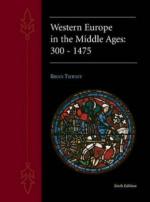|
This section contains 2,017 words (approx. 7 pages at 300 words per page) |

|
Defining Limits.
While the twelfth century was a great period of religious reform and revitalization, there were also harsh caveats that came from Rome regarding unworthy priests, schismatic groups, and, in their opinion, wrong-thinking leaders of movements. The same climate that fostered reform was also a breeding ground for ideas not in keeping with the basic doctrines of Christianity. It was actually Rome who decided which groups had gone too far. But they almost always allowed opportunities of forgiveness for the wayward to come back to the fold. This made the heresies more a matter of disobedience, failure to accept correction, and open rejection of the church's official position than the adherence to a belief which brought with it permanent condemnation. The early heretics in Western Europe were not always theologians; rather, they were sometimes merely simple people who condemned worldliness and hierarchical church institutions in...
|
This section contains 2,017 words (approx. 7 pages at 300 words per page) |

|




